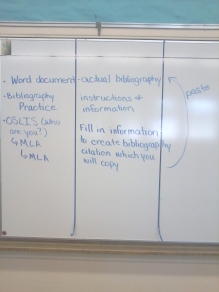We did it! We managed to get to the end of the year. I don’t think I’ve cried that much at the end of the year since 1994, my first year teaching. I really felt that this was my last time in a classroom setting…at least in this way. Oh, have I mentioned that I was RIFed (laid off due to reduction in force) and I have gone in to sign up as a substitute. I’m actually not as upset about it as one would think I’d be after 18 years in the classroom because I have projects that I want to complete this year. I would like to get my National Board Certification and I want to start an online charter school through LAUSD. That should keep me busy, doncha’ think?
I got my teaching credential in the late 90’s through the District Intern Program and I have heard that the National Board Process is very similar to that. Therefore, I figured if I’ve done it once, no reason I can’t do it again. Now the only question is for what specialty I should apply. Although I have a multiple subject credential, that is not how I want to be certified. I am thinking either Math or ESL. I loved teaching my beginning ESL class. It was very challenging and always brought something new. That is right up my alley! However, there is a national need for math teachers, so I think that it might be smart for me to get certified in math. However, if I do choose math, there is still the question of “What level?” Do I select the middle school level, or the high school level? Just for the sheer challenge, I would love to select high school, but all of my experience is with middle school. (sigh) What to do?
Now, I am absolutely jazzed about starting a charter school! I want a different model than what is currently out there and LAUSD does not have any online charter schools. I figure the reason is that it is a difficult process, so me being me, I am looking forward to the challenge. I plan to do a lot of research this summer and I am confident that as I discuss it more, I will be able to get a board together to do it. My strength is in realistic curriculum that will work IRL (in real life) but I need a board to help with getting the idea from my head and into the real world, or virtual world. I can’t wait to get started.
As I start these projects however, it is all bittersweet. I will definitely miss the classroom. And I can’t begin to express how much I will miss my students. I love the interaction I had with them and I really love the rapport that I was always able to create with these middle schoolers. I am going to miss my monkeys.
